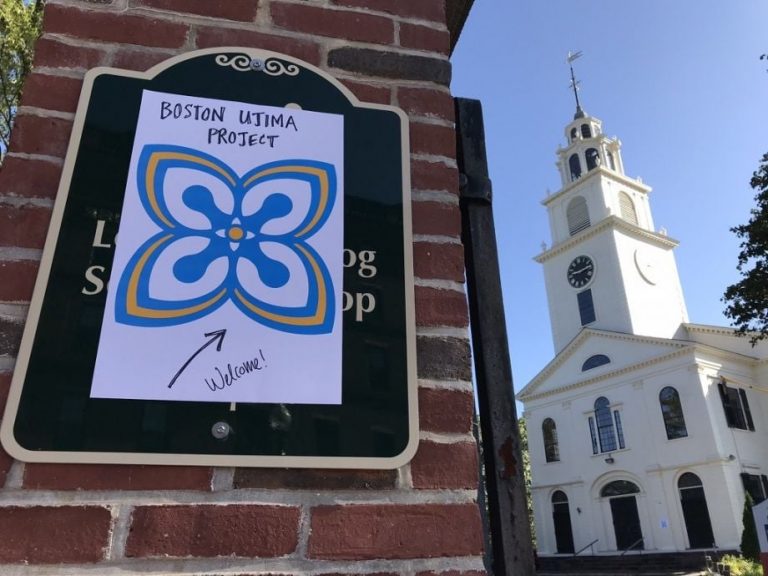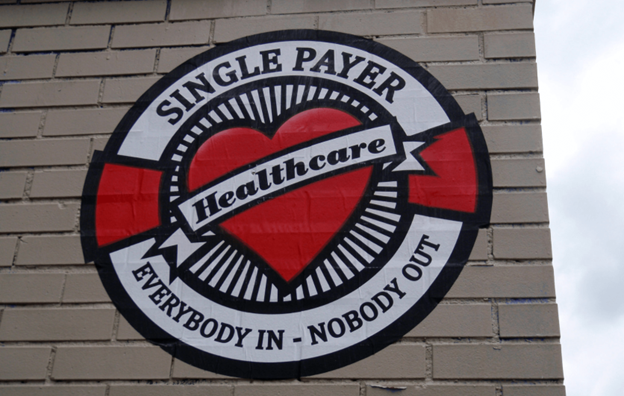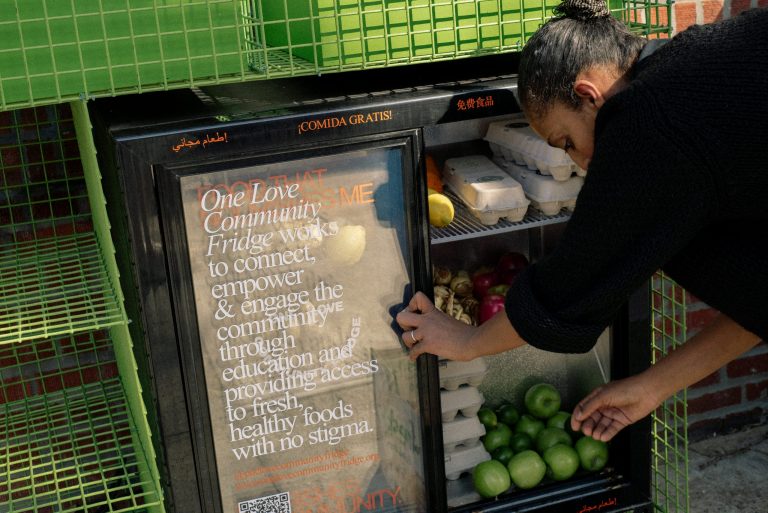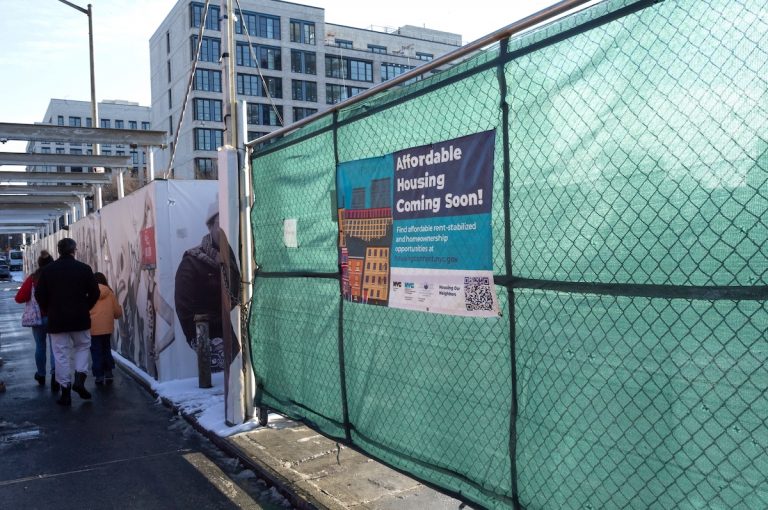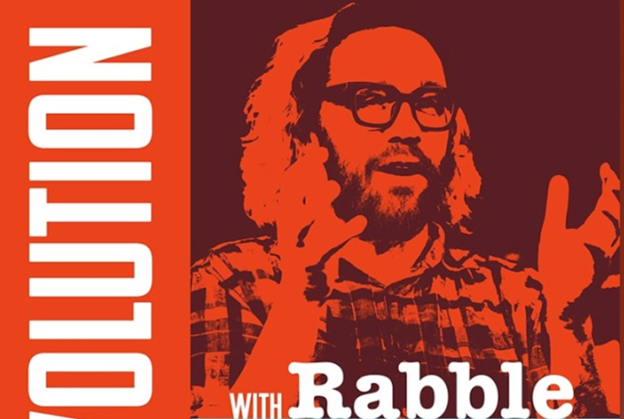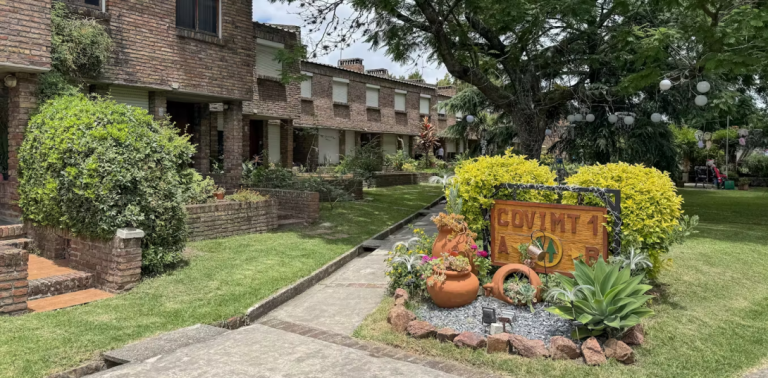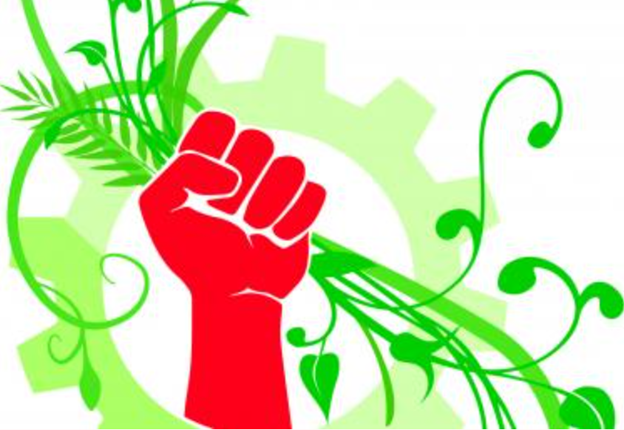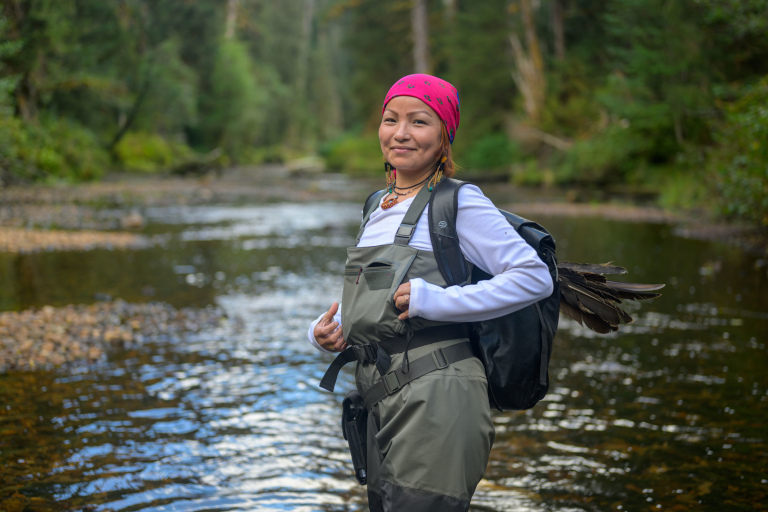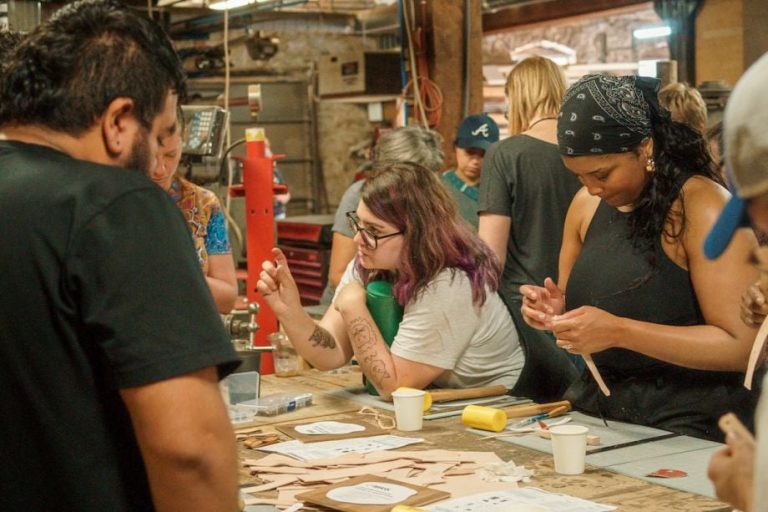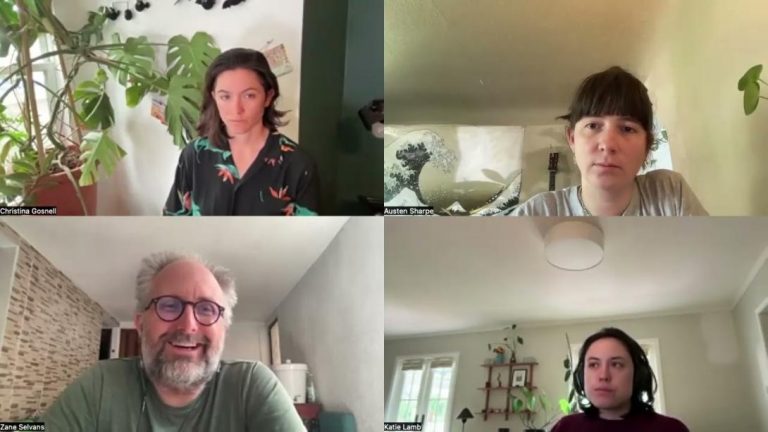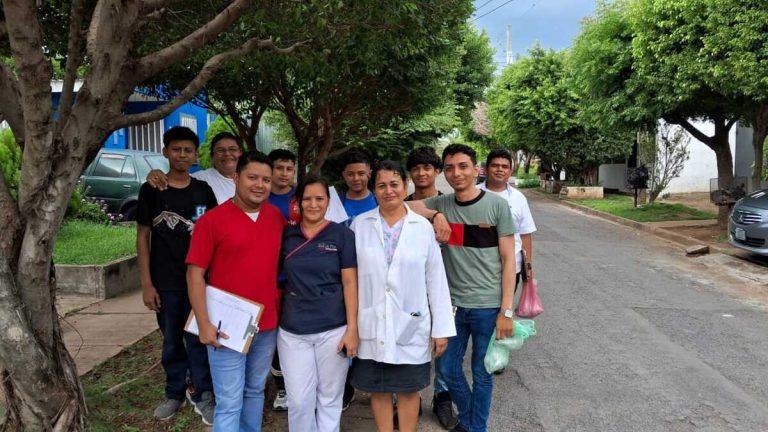Create!
![]() Along with direct action and other forms of resistance, a transformational movement must also have a constructive program that builds new institutions based on the values that the movement aspires to achieve. These may eventually replace the old systems. From small, worker-owned cooperatives to national advocacy groups, hundreds of thousands of people around the country are working to create democratic and sustainable systems that meet the basic needs of all people.
Along with direct action and other forms of resistance, a transformational movement must also have a constructive program that builds new institutions based on the values that the movement aspires to achieve. These may eventually replace the old systems. From small, worker-owned cooperatives to national advocacy groups, hundreds of thousands of people around the country are working to create democratic and sustainable systems that meet the basic needs of all people.
If there’s one thing Ruby Reyes loves more than learning, it’s protecting and supporting opportunities for her community to learn together.
She gets to do both as part of the Boston Ujima Project’s member fund management committee, which reviews potential investments for the community-controlled social investment fund focused on uplifting Boston’s BIPOC communities. Each investment requires a majority vote for approval from the Boston Ujima Project’s voting membership, which currently consists of 240 people who identify as working-class or person of color or both, either living in Boston or have been displaced from Boston.
The Boston Ujima Project has made 10 investments so far.
It Will Take National Single Payer To Save Rural Hospitals
August 13, 2025
Kay Tillow, Counter Punch.
Create!
Austerity, Health Care, Rural Hospitals, Single payer health care
After 30 years of service to a rural Nebraska community, the Curtis Medical Center will close. Troy Bruntz, CEO of Community Hospital which owns the Center, announced that the cuts to Medicaid in the budget reconciliation act of 2025 were the immediate cause. Those federal budget cuts have “made it impossible for us to continue operating all of our services, many of which have faced significant financial challenges for years,” said Bruntz.
The closing of the Curtis Medical Center is just the beginning of the projected damage. About 15 million are expected to lose health care coverage from the Medicaid cuts and other provisions in the budget reconciliation bill passed on July 4.
Fighting Displacement Before Gentrification Takes A Hold
August 11, 2025
Eliana Perozo, Next City.
Create!
Affordable Housing, Baltimore, Displacement, Gentrification
In cities across the country, revitalization often comes at a cost: longtime residents priced out or forced out of their homes. In West Baltimore, Bree Jones founded Parity Homes to prove that another path is possible.
Like many other housing nonprofits, Parity Homes is revitalizing dilapidated housing and selling them at more affordable rates. Unlike similar initiatives, it is doing so in a neighborhood that hasn’t been overrun by abandonment quite yet. Baltimore has seen one of the country’s highest rates of gentrification, but Jones says West Baltimore hasn’t experienced peak gentrification. That makes it easier to proactively keep neighborhoods affordable and protect people local to those neighborhoods from being displaced.
One Love Community Fridge Is Feeding People And Changing Lives
August 5, 2025
Laine Doss, Broken Palate.
Create!
Community Refrigerator, Food Security, Mutual Aid, Sharing Economy
New York City is considered by many to be the greatest city in the world, not only for its stunning skyline, fine dining, cultural exhibits, and rich history, but also for its vibrant community and resilience. In 2020, the city was reeling from COVID-related lockdowns, with many people losing their jobs. Food banks and other social services were overwhelmed. It was then that Asmeret Berhe-Lumax decided to do something. The former fashion and beauty executive decided to set up a community fridge in Brooklyn’s Bed-Stuy community, rallying support from family and friends to keep that one fridge stocked with nutritious food.
New York Finalizes Rule For New Buildings To Be Electric
August 5, 2025
Paige Bennett, EcoWatch.
Create!
climate crisis, Electrification, Fossil Fuels, New York (NY), Urban Design
New York is now the first state in the U.S. to require new buildings to be built entirely electric, without hookups to fossil fuels including gas, the New York State Assembly reported.
The rule was initially passed in 2023 as the All-Electric Buildings Act and was finalized with the State Fire Prevention and Building Code Council’s approval in late July 2025.
According to the new mandate, residential buildings up to seven stories tall and commercial or industrial buildings up to 100,000 square feet with building permit applications for initial construction approved on or after Dec. 31, 2025 will be required to meet the requirements by that date.
Black-Led, Progressive Homeschool Networks Rise Amid Book Bans
Earlier this year in San Antonio, Texas, an eight-year-old delivered a fiery, impassioned speech to the office of Republican Sen. Ted Cruz.
Introducing herself as Cari, a third-grader from South Texas, she made a demand: “Stop supporting immigration bills that are hateful. It would harm my friends and people in our community.” She even offered him reading material: “In the Kelly Yang book, Front Desk — a banned book — she says… ‘No human is illegal!’ You should read this book!”
The office hung up on her. Cari called again, advocating for a ceasefire in Gaza. Again, the office hung up.
The Importance Of Network Protocols For Commoning And Open Markets
Most of us don’t give much thought to the arcane technical protocols that make the Internet and its various platforms work. Yet these invisible architectures of code profoundly affect how we can interact with others. They determine what sorts of information we can receive and even how our worldviews and identities are shaped.
Sometimes tech protocols empower us to govern ourselves as commoners and freely collaborate with each other. Think open source software, wikis, and collaborative websites. More typically, network protocols are used to create closed, proprietary corporate platforms that turn us into dependent consumers and victims of data-surveillance.
Venezuela On The Verge Of Eradicating Hunger
August 2, 2025
Mision Verdad, Orinoco Tribune.
Create!
Bolivarian Revolution, Food Security, Hunger, Venezuela
Since the imposition of illegal coercive measures (euphemistically referred to as sanctions) by the US and its allies on Venezuela in 2014, and after 11 years with a burden of 1,041 Unilateral Coercive Measures (MCU) on the nation, which places it between the fifth and sixth most sanctioned country in the world depending on the source, the country has once again reduced the hunger that appeared amid the economic, financial, and commercial blockade perpetrated against the national government as part of the war to stifle the economy, prevent the supply of essential goods, and negatively impact food security and sovereignty, with the goal of imposing the failed regime change.
What The World Can Learn From Uruguay’s Housing Co-Ops
August 1, 2025
Jennifer Duyne Barenstein and Daniela Sanjines, Grassroots Economic Organizing.
Create!
Affordable Housing, Cooperatives, Housing, Uruguay
More than 1.8 billion people lack access to adequate and affordable housing. Yet too few countries have taken meaningful steps to ensure dignified housing for their most vulnerable citizens.
We research how cooperative housing can serve as one solution to the affordable housing crisis. There are a variety of cooperative housing models. But they generally involve residents collectively owning and managing their apartment complexes, sharing responsibilities, costs and decision-making through a democratic process.
Some countries have embraced cooperatives. In Zurich, Switzerland, almost one-fifth of the city’s total housing stock is cooperative housing.
What Does Cuba’s New Legal Gender Recognition Law Entail?
On July 18, Cuba’s National Assembly of People’s Power approved a sweeping reform of the Civil Registry Law, which will allow transgender people to update their legal gender on official documents without requiring gender reassignment surgery.
The reform was unanimously approved by the Cuban Parliament and aligns with the provisions of the 2019 Constitution and the Family Code, approved by referendum in 2022.
In addition to legal gender recognition, the new law legally recognizes affective unions between unmarried couples and allows parents to choose the order of their children’s surnames, opening the door to more equitable and less normative practices in family structure.
For An Eco-Communist Alternative To Degrowth And ‘Luxury’ Communism
July 27, 2025
Esteban Mercatante and Federico Fuentes, The Bullet.
Create!
Book Review, Capitalism, Eco-Communism, Karl Marx
In his new book, Rojo fuego. Reflexiones comunistas frente a la crisis ecológica (Fiery red: Communist reflections on the ecological crisis), Argentine Marxist Esteban Mercatante takes aim at capitalism as the root cause of the “multidimensional” ecological crisis, while engaging in important dialogues with ecological currents such as degrowth and ecomodernism. Against these, Mercatante argues for an “eco-communist” strategy, focused on labour as the agent of both its own emancipation and the qualitative transformation of society’s relationship with nature, as the only means to avoid disaster.
With the book only available in Spanish, Federico Fuentes from LINKS International Journal of Socialist Renewal spoke to Mercatante.
Welcome To The Great Bear Sea
The ocean bumps beneath our boat, and a cold mist obscures the way forward. I peer over the driver’s shoulder to consult the GPS screen behind the steering wheel. The map reveals a labyrinth of islands, as well as dozens of inlets and fjords cutting up the western fringe of British Columbia’s Central Coast. Most bear colonial names: Jackson Passage, Laredo Inlet, Princess Royal Channel. But looking closer, I can make out other, older names: Nowish, Khutze, Kynoch.
When the mist lifts, the topography pops up all around me. Sheer granite peaks plunge into a Magic Eye mirage of cedar, fir, and spruce trees rooted to rocky shores.
A Makerspace Revitalizes Lives, Small Businesses And A Neighborhood
The scent of sawdust greets Gabriella Mooney as she walks through the doors of MASS Collective, heading for an office in the back. It’s a busy weeknight, and Julia Hill – a local master welder, artist and sculptor – is showing a group of five apprentices the tools for MIG welding.
At Hill’s cue, they pull down their masks, and the welding torch lights up the room with sparks. As Mooney walks farther into the shop, she hears the grind of the CNC machine from another class of 10 people and sees several young adults refining their creations with the woodshop sander.
This space has been like a second home for Mooney, who over the past decade has led the charge to create a neighborhood makerspace and apprenticeship program in downtown Atlanta.
What It’s Like To Work At A Tech Worker Co-op
July 22, 2025
Catalyst Cooperative, Grassroots Economic Organizing.
Create!
Cooperative, Tech Workers, Technology, Worker Rights
Catalyst Cooperative is an all-remote, 8-person, tech worker cooperative based in North America. The coop was founded in 2017 with the mission to make US energy system data more accessible. Catalyst's main objectives are to curate the free, open-source Public Utilities Data Liberation project (PUDL) and help clients navigate a myriad of energy or environmental data needs.
We filmed this interview to help researchers or coop-curious individuals learn more about what it's like working at a tech cooperative.
46 Years On, Nicaragua’s Youth Still Lead The Revolution
July 21, 2025
Becca Renk, Tortilla Con Sal.
Create!
Nicaragua, Sandinista Revolution, Youth Activism, Youth Leadership
One of the questions I’m asked most frequently about Nicaragua is: “Does the revolution have a future?”
Forty-six years ago, a popular revolution led by the Nicaragua’s youth overthrew the brutal Somoza dictatorship. Today, those viewing the country from the outside see that the surviving muchachos – the kids who defeated Somoza – are now in their 70s and 80s, and they worry that Nicaragua’s revolution won’t survive without them.
To anyone who visits the country, however, it is obvious that Nicaragua’s revolution, which has managed to both revere its historical heroes and also treasure its youth, is stronger than ever.

